Chapter Three – Vocabulary – English Form Two
Introduction
Vocabulary serves a foundation for learning across all subjects. This chapter will help you recognise words with opposite meanings in both conversations and written texts. It will also enhance your vocabulary through listening to conversations and reading texts.
Lastly, you will use words from conversations and written texts to create new vocabulary by attaching prefixes and suffixes. The competencies developed will enrich your vocabulary and support your understanding of instructions, textbook contents and examination questions, thereby contributing to better communication in various contexts.
Think about:
- how you expand your English vocabulary.
- how you find meanings of unfamiliar English words.
- why you need wide English vocabulary.
Activity 1: Recognising words with opposite meanings
(a) Read the following dialogue between Ms Maajabu (an English language teacher) and students. Then, respond to the questions that follow.
Ms Maajabu: Hello, students! Hopefully, everyone’s alright.
Students: We’re all fine, Madam!
Ms Maajabu: Good to hear that. We resume our discussion on vocabulary. Today, we’ll focus on words with opposite meanings. Leilah, can you remind us what the term ‘vocabulary’ means?
Leilah: In our previous discussion, we agreed that vocabulary means all words used in a particular language; it’s not just unfamiliar or difficult ones, as some people may think.
Ms Maajabu: Thank you, Leilah, for reminding us about the definition of the term vocabulary, as we defined in the previous discussion. Can someone else add another idea about vocabulary? Baraka, you look ready to contribute.
Baraka: Thank you, Madam! We also observed that to expand our vocabulary, we must learn different words and understand how their meanings can change in other contexts. Learning words with similar meanings and those with opposite meanings will help us to choose the right vocabulary to use in sentences.
Ms Maajabu: Very good observation, Baraka! Can we make one last contribution to this? Yes, Kibibi.
Kibibi: We also need to remember that vocabulary isn’t taught directly in class. We expand it by reading, listening, writing and speaking. Good communicators begin by being good listeners, speakers, readers and writers.
Ms Maajabu: Thank you, Kibibi, for your wonderful observation. Also, remember that learning words with similar meanings and words with opposite meanings helps to enrich vocabulary. Kirobo, you look worried. Is there any problem?
Kirobo: Yes, Madam! I wonder how words with opposite meanings can improve someone’s vocabulary. Honestly, I’m confused.
Ms Maajabu: Kirobo, knowing opposite words like good and bad helps us to understand and use the words appropriately. For example, understanding the meaning of the word ‘good’ necessitates knowing the word for referring to an entity that is ‘not good’ and other related words. As you keep learning more words with opposite meanings, you enrich your vocabulary. Consequently, you’ll learn the appropriate context for each opposite word in relation to the meaning presented by the opposed word. Anyone can expand their limited vocabulary by learning words with opposite meanings. Kalunde, what makes you smile?
Kalunde: Madam, I find this approach easy to improve my vocabulary. How can I get words with opposite meanings in a dictionary?
Ms Maajabu: Don’t worry Kalunde! Words with opposite meanings are called antonyms. Those with similar meanings are synonyms. The dictionary can help you; however, it is advisable to use their context in sentences before you rush to the dictionary. Finally, I would like to thank you all for your active participation. Have a good day!
Students: Thank you, Madam!
Practice
- Use each italicised word to write two sentences of your own.
- Write two words with opposite meanings for each italicised word.
(b) Listen to a 10-minute recorded conversation or movie clip from an online source you can access. Then, do the following:
- Identify five words that are familiar to you and the sentences in which they are used.
- For each word, write three sentences of your own.
- Write three words with opposite meanings in each word you have identified in (1).
Exercise 1
A. Study the words in Column A and find their opposite meanings in Column B. Write the letter of the correct answer in the space provided.
| S/N | Column A | Answer | Column B |
|---|---|---|---|
| 1. | Wise | A. enemy, unfriendly, hostile, opposing, adversary, rival, foe, antagonist, adversary, defiant, unkind, opponent, virulent, dissident, challenger | |
| 2. | Fresh | B. slim, slender, bony, scanty, thin, skinny, feeble, faint, low, raw-boned, lean, trim, lanky, slight, light, rangy | |
| 3. | Fat | C. foolish, careless, unintelligent, dull, stupid, ignorant, silly, unwise, headless, unadvisable, rush, injudicious, imprudent, irrational, crazy, reckless | |
| 4. | Friend | D. old, rotten, stale, decaying, spoil, foul, mature, dirty, musty, reeking, rancid, foetid, bad, stinking, sour, nasty |
B. Use one opposite meaning from Column B for each word in Column A to make a sentence.
C. Add a word with an opposite meaning in the column next to each word listed in the following table, and provide an example sentence illustrating the opposite meaning. The first item is given as an example.
| Word | Opposite meaning | Example |
|---|---|---|
| Tall | short | A short boy opened the door |
| Long | ||
| Happy | ||
| Soft | ||
| White | ||
| Strong | ||
| Cheap | ||
| Difficult | ||
| Complex | ||
| New | ||
| Young | ||
| Tight | ||
| Tough |
Activity 2: Producing new vocabulary by attaching prefixes and suffixes
(a) Study the picture that follows and write a brief explanation of what you understand from it.
Affixes
Prefix Before
pre-
im-
dis-
over-
anti-
Root
Base Word
Suffix After
-s, -es
-ed
-est
-ing
-ly
-ful
-er
-able
-ible
-less
-ness
New Word
Did you know?
Affixation is a process of adding an affix to the base or root to modify its meaning or create a new word. A root is the fundamental part of a word that carries the primary meaning and can stand alone or be combined with affixes. Affixation is a common method for expanding vocabulary by adding meaningful elements into existing words. Affixes are morphemes that can be attached to the beginning, middle or end of a word/root. The most common types of affixes are prefixes and suffixes.
A prefix is added to the beginning of the word/root. For example, in the word ‘unhappy’, ‘un-‘ is a prefix added to the word ‘happy’. In contrast, a suffix is added to the end of a word/root. In English, suffixes can change the meanings of words and often alter their grammatical classes. For example, adding the suffix ‘-ness‘ to the adjective ‘happy’ forms the noun ‘happiness.’ Similarly, adding the suffix ‘-ly‘ to the adjective ‘quick’ forms the adverb ‘quickly.’ In English, suffixes can also indicate tense, plurality, or comparison, as seen in ‘talked‘ (past tense), ‘books‘ (plural), and ‘stronger‘ (comparative).
(b) Read the following interview transcript and respond to the items that follow.
Host: Welcome to our programme on ‘Hot Sports Matters’. Can you briefly tell us and the viewers who you are and the player you manage?
Guest: Sure! I’m Likolikaja, an artist, a football fan, and the manager of super striker, Matata Kioja, who has recently grabbed the headlines.
Host: Can you shortly tell us the story behind your player and the claims from his club management?
Guest: Tactically, everything is in place. There is nothing unlawful. This should be plainly understood by our supporters and the entire football community. There is a lot of misleading information about my player. Being an international player creates hostility between us and our rivals. Initially, I was unaware of this indecent news spreading like wildfire. However, I want everybody to know that disappointment is not our choice. We are spiritually, emotionally and physically motivated to fight and win this psychological battle. We are pre-determined to take a lead inside and outside the playground.
Practice
- Study the italicised words and separate prefixes and suffixes in each.
- Write the words to which prefixes and suffixes were initially attached.
- Attach the identified prefixes and suffixes to other words to produce new vocabulary.
(c) Read the following passage and respond to the items that follow.
Being the manager of the player, Likolikaja was asked if he could see any future between the club and his player. He responded that everything related to the signing remained unchanged. It was solely for the club to get rid of the unprofessional conduct that seemed to endanger his players’ careers. He added that they still had much to offer for the achievement of the club as the sole employer, and their commitment was still very high. They believed a room for discussion could lead them to fairness, and justice would prevail. He confirmed that Kioja had undeniably relocated but had not abandoned the team.
He, therefore, made it clear that the allegations that he signed with more than one club were invalid. He disclosed that the club was aware of this truth, although for unknown reasons, nobody had ever come out to talk about it. He considered this silence dangerous since it allowed irrelevant discussions which ruined the reputation of his player and also made people suspicious of the relationship between the player and the club.
He insisted that, professionally, such a reaction was unfair and doubtful. It could be interpreted as an indirect rebranding of the player. Therefore, he urged the club to consider the costs of rebranding the player. He wondered why the club should silently battle against the player in a situation where an invitation for productive talks was permissible.
When he was asked to clarify whether the accusations against the club meant the business partnership between his player and the club no longer existed, he said he was probably misquoted. He insisted that he did not accuse anybody there, but he was trying to interpret the prevailing situation.
Practice
- List ten words with attached prefixes and suffixes.
- Study the listed words and separate prefixes and suffixes from them.
- Write the words to which prefixes and suffixes were initially attached.
- Attach the identified prefixes and suffixes to other words to produce new vocabulary.
(d) Identify unfamiliar prefixes and suffixes attached to the words you identified in the passage in (c) and do the following:
- Look up their meanings in a dictionary.
- Attach the prefixes and suffixes to other words to produce new vocabulary, and use each of the new words to construct a meaningful sentence.
VOCABULARY
CLICK HERE TO GET NOTES PDF
Exercise 2
Complete the following sentences by attaching the correct prefix to each word in brackets.
- This information is ______ (correct). It will ______ (lead) you.
- The business you plan is ______ (legal). The police will be after you soon.
- He was so ______ (kind) that he couldn’t help anybody.
- You have to ______ (write) your work if you need good grade.
- A good writer avoids ______ (relevant) content.
- He couldn’t make friends due to his ______ (social) behaviour.
- She couldn’t travel abroad because her passport was ______ (valid).
- You will ______ (danger) your health if you ______ (work) yourself.
- We need to ______ (power) our children to stand for their rights.
- Education will ______ (able) you to think wisely about life.
Exercise 3
Complete the following sentences by attaching the correct suffix to each word in brackets.
- He worked very hard expecting that he would enjoy his ______ (retire).
- My ______ (kind) put me in trouble when I assisted a man with stolen items.
- The place was ______ (beauty) and ______ (space).
- You need to be ______ (care) when you cross the road.
- We should all raise our voices against ______ (race).
- Before you are registered, you will have to undertake a medical ______ (examine).
- You have to be a good ______ (learn), if you want to be ______ (success).
- Maua wishes to become a ______ (science).
- The chief ______ (library) ordered us to be ______ (silence).
- We were all impressed with ______ (history) information from our resource person.






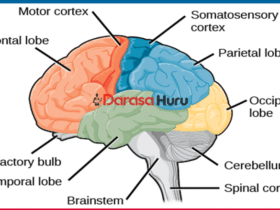
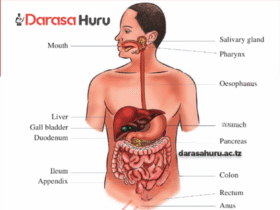


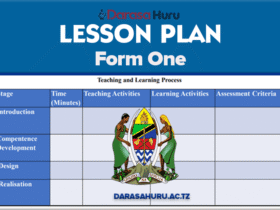






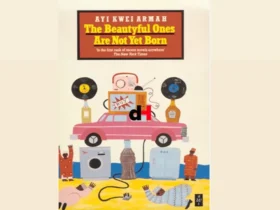


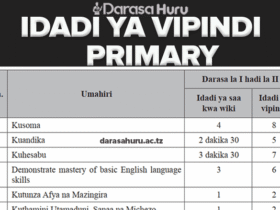



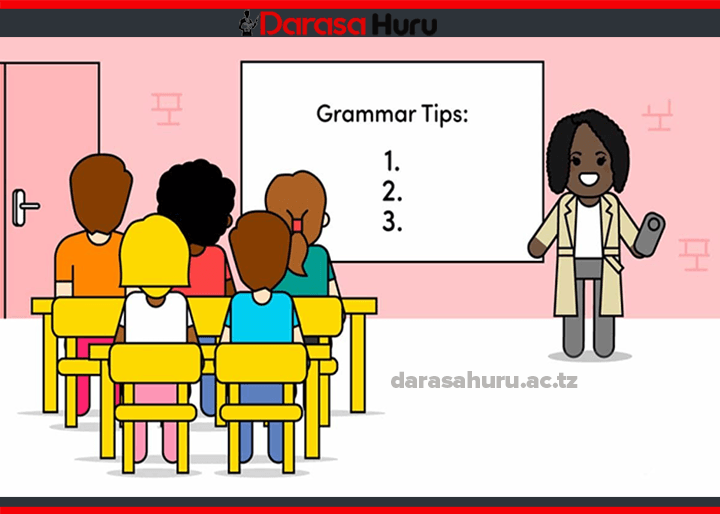



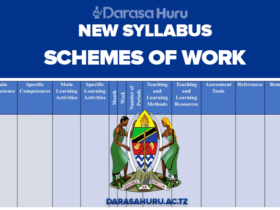











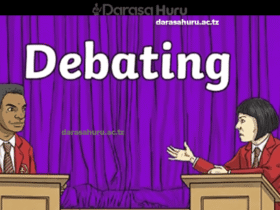

Leave a Reply